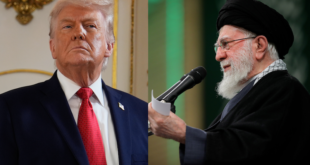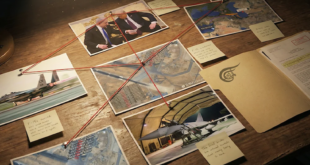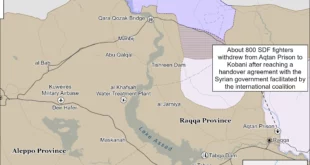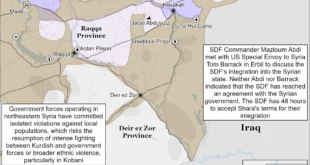The chief of the UN nuclear watchdog Mohamed ElBaradei will tell nations on its governing board this week Iran’s pledge of extra atomic transparency should be given a chance to work, not dismissed as a time-buying ruse. The deal Iran agreed with International Atomic Energy Agency inspectors to explain the scope of its nuclear program faces scrutiny at a meeting of the IAEA’s 35-nation board starting on Monday.
The plan has vexed Western powers by allowing Iran to answer questions one by one according to a timeline while leaving untouched its expanding uranium-enrichment program, despite UN Security Council resolutions demanding a halt.
It has also wrong-footed a US-led push to rein in Iran by eroding European support for, and stiffening Russian resistance to, tougher UN sanctions. Iran won the reprieve by threatening to cut off the IAEA if pressure intensifies, diplomats said.
After sparring with Washington over the plan and receiving a demarche from its closest EU allies, IAEA Director Mohamed ElBaradei said he would underline to the board that the deal marks an important step forward, not a damaging setback.
The plan’s text says that the IAEA could make no more inquiries once historical questions were solved even if fresh suspicions arose, and excused Iran from UN demands to grant wider inspections or suspend enrichment.
The plan is a “working document” to be built on, not a final treaty that precludes any measures not spelled out, ElBaradei told reporters invited to a rare briefing on Friday.
He said he would also make clear the IAEA would insist on documentation and access to hitherto off-limits areas to check Iranian answers, a key measure missing from the plan.
“Whether Iran will walk out of this understanding, I don’t know now. All we know is that Iran has committed to cooperating and clearing their name. We have to give them that chance.”
Iran says its nuclear energy quest is solely for electricity generation, not a front for bomb making as the US claims, and it is serious about going the extra mile to overcome mistrust
President Mahmoud Ahmadinejad said Iran would not bow to Western pressure and halt its atomic work and suggested there was growing acceptance for Tehran’s position in the nuclear row.
He said Asian and non-aligned countries had already accepted that Iran’s nuclear activities were peaceful, “There are only one or two countries who do not understand the reality and they imagine that they can make the Iranian nation retreat.”
Gregory Schulte, US ambassador to the IAEA who at first suggested IAEA negotiators had been outfoxed by Iran, said on Friday the plan had potential merit.
Western diplomats said ElBaradei had privately assured them he would judge by November, when the board holds its year-end meeting, whether Iran was serious. If not, that would help create a basis for a third, stronger sanctions resolution.
ElBaradei said he predicted broad support for the plan at the board gathering once he clarified its dimensions.
“We’re prepared to see this plan proceed as a litmus test of Iranian intentions,” a senior Western diplomat said.
 Eurasia Press & News
Eurasia Press & News



